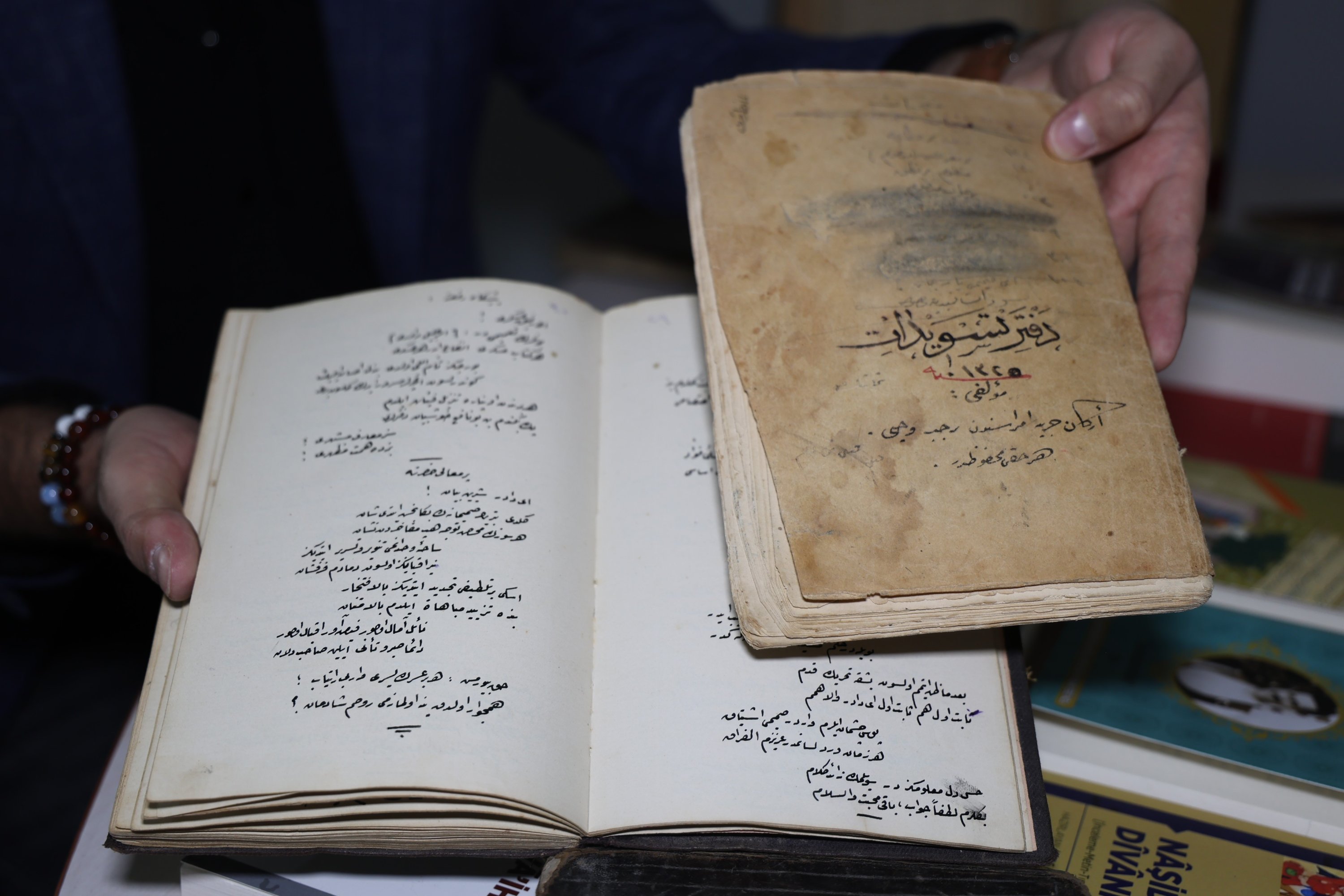© Turkuvaz Haberleşme ve Yayıncılık 2026
Recep Vahyi, a prominent writer from the “Middle Generation” period in Turkish literature, has made a comeback in the academic world. His works, long considered lost, were recently rediscovered at an auction thanks to the efforts of Ilyas Kayaokay, an academic from Munzur University. The manuscripts, written by Vahyi himself 117 years ago, include "Defter-i Tesvidat" and "Ihtisasat," shedding new light on Vahyi’s contributions to Turkish literature.
Kayaokay, an expert in Ottoman-era manuscripts, has spent over a decade collecting handwritten manuscripts and objects from auctions and antique bookstores. His recent acquisition of Vahyi’s manuscripts is a significant addition to his collection, which he continues to build despite limited funding. To purchase the works, Kayaokay took out a loan.

In his remarks, Kayaokay explained the importance of Recep Vahyi in Turkish literature. He described the "Middle Generation" as a bridge between the Tanzimat era’s second generation and the Servet-i Fünun period, playing a crucial role in advancing literary innovation. Vahyi was one of the most significant authors of this generation, influencing poets like Tevfik Fikret. Notably, he was also the first to translate Russian literary works into Turkish.
Born in Crete in 1867, Vahyi served in the military, rising to the rank of miralay (colonel). After his retirement in 1914, he lived a life of integrity and devotion, and never married. He passed away in 1923, alone after a period of illness and was buried at Karacaahmet Cemetery. His unpublished works and personal belongings are believed to have been inherited by his two sisters but later vanished.
Kayaokay emphasized that Vahyi’s unpublished works had been mentioned in literary sources, including "Son Asır Türk Şairleri (Turkish Poets of the Last Century)" by İbnü'l-Emin Mahmud Kemal İnal and a 1997 doctoral thesis by Cafer Gariper. Among these, "Defter-i Tesvidat (1907)" and "İhtisasat (1909)" are particularly significant. These handwritten manuscripts, filled with corrections, signatures, and personal seals, include unpublished poems, hymns, letters and translations from French and Russian, as well as elegies dedicated to famous poets.
These two works, lost for 117 years, were nearly forgotten or possibly smuggled out of the country. Kayaokay intends to publish them in a collected volume, preserving Vahyi’s contributions for future generations.
Having spent years collecting manuscripts on a tight budget, often relying on loans, Kayaokay has seen many valuable works sold at auctions or lost. He urges the government to take action to protect such cultural treasures. "While the state cannot monitor everything, a commission should be established to track and preserve these literary works," he concluded.
